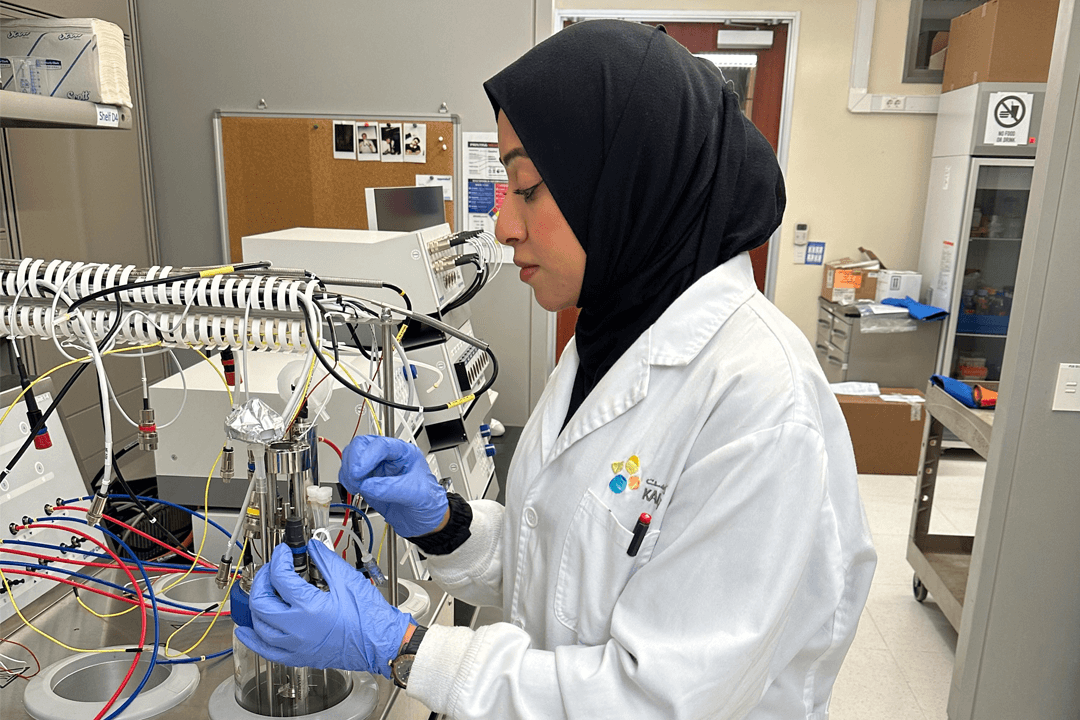Dana Alsulaiman recognized as leader for Women in Science

Dana Alsulaiman in her lab
Assistant Professor Dana Alsulaiman was named one of six L'Oréal-UNESCO For Women in Science Middle East Regional Young Talents this month. Lila Aldakheel, a KAUST Ph.D. student was also awarded for her achievements in the student category. Since 2014, the L'Oréal-UNESCO For Women in Science Middle East Regional Young Talents program has recognized young Arab female scientists from Gulf countries who have excelled at the life or physical sciences.
Dr. Alsulaiman joined KAUST in 2021 after studying and working in several countries. After finishing her high school studies in Canada, she earned three degrees at Imperial College of London before joining MIT as an Ibn Khaldun Postdoctoral Fellow to combine polymeric biomaterials and micro-technologies in healthcare applications. Using her innovations to detect disease-specific nucleic acid biomarkers, including DNA and microRNA, she aims to give the healthcare industry tools for the early and accurate detection of several diseases such as cancer. Furthermore, her technologies save money and are minimally invasive, meaning more patients are likely to have access to the tests.
The award was a testament to not only her accomplishments but also the innovative approaches she has taken in developing biomarker detection technologies. It also considers how the candidate has advocated science to youth and encouraged Arab women to enter the field.
“I am tremendously grateful for this recognition. With the support and facilities I have access to here in Saudi Arabia and at KAUST, I hope and intend to make bold and creative contributions to transforming the field of healthcare in the MENA region and beyond,” she said.
This award is one of many of Alsulaiman’s achievements. In January 2022, she won the "Innovators Under 35" for her breakthrough creation, a non-invasive method for cancer diagnosis based on a microneedle chip placed on the patient’s skin.

Lila Aldakheel
Additionally, Lila Aldakheel received a student prize for her research. In the laboratory of Prof. Alexandre Rosado, she is studying the effects of microplastics contaminating mangrove forests and ways to degrade the microplastics. She is also examining the microbial communities within microplastics, as they may have properties that promote microplastic degradation.

